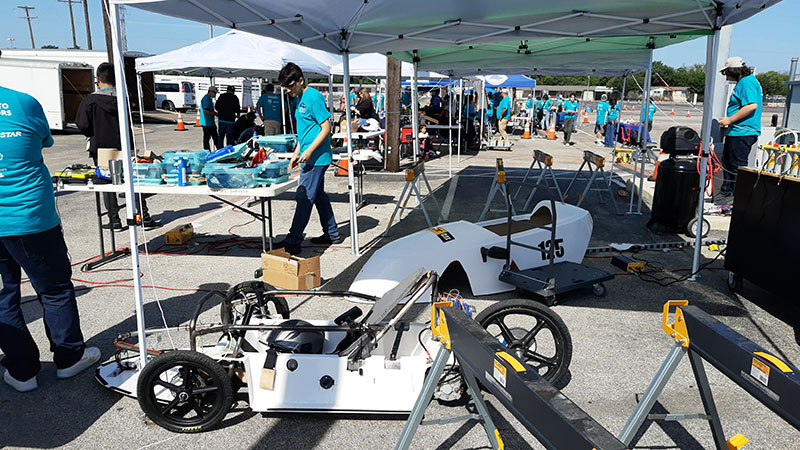Electrathon racing, a platform for applied Science, Technology, Engineering, and Mathematics (STEM) education, engages students in the design and construction of electric-powered karts. Within this framework, students are often provided with foundational components, including the electric motor, battery pack, and a basic frame, serving as a starting point for their engineering endeavors. However, the core educational value lies in the students’ autonomy to develop and implement the remaining critical systems. This includes the intricate design and integration of the steering mechanism, braking system, suspension setup, and the overall carriage structure. Students are tasked with applying theoretical knowledge to practical challenges, optimizing performance, and ensuring safety. This hands-on approach fosters critical thinking, problem-solving, and collaborative skills. Throughout the process, educators and tutors act as mentors, offering guidance and technical advice, but ultimately empowering students to make design decisions and execute their plans. This project-based learning model allows students to explore electrical engineering, mechanical design, and system integration in a real-world context, preparing them for future careers in STEM fields. The Electrathon experience transcends simple assembly, demanding innovative solutions and meticulous execution, thereby cultivating a deep understanding of engineering principles and practical applications.



